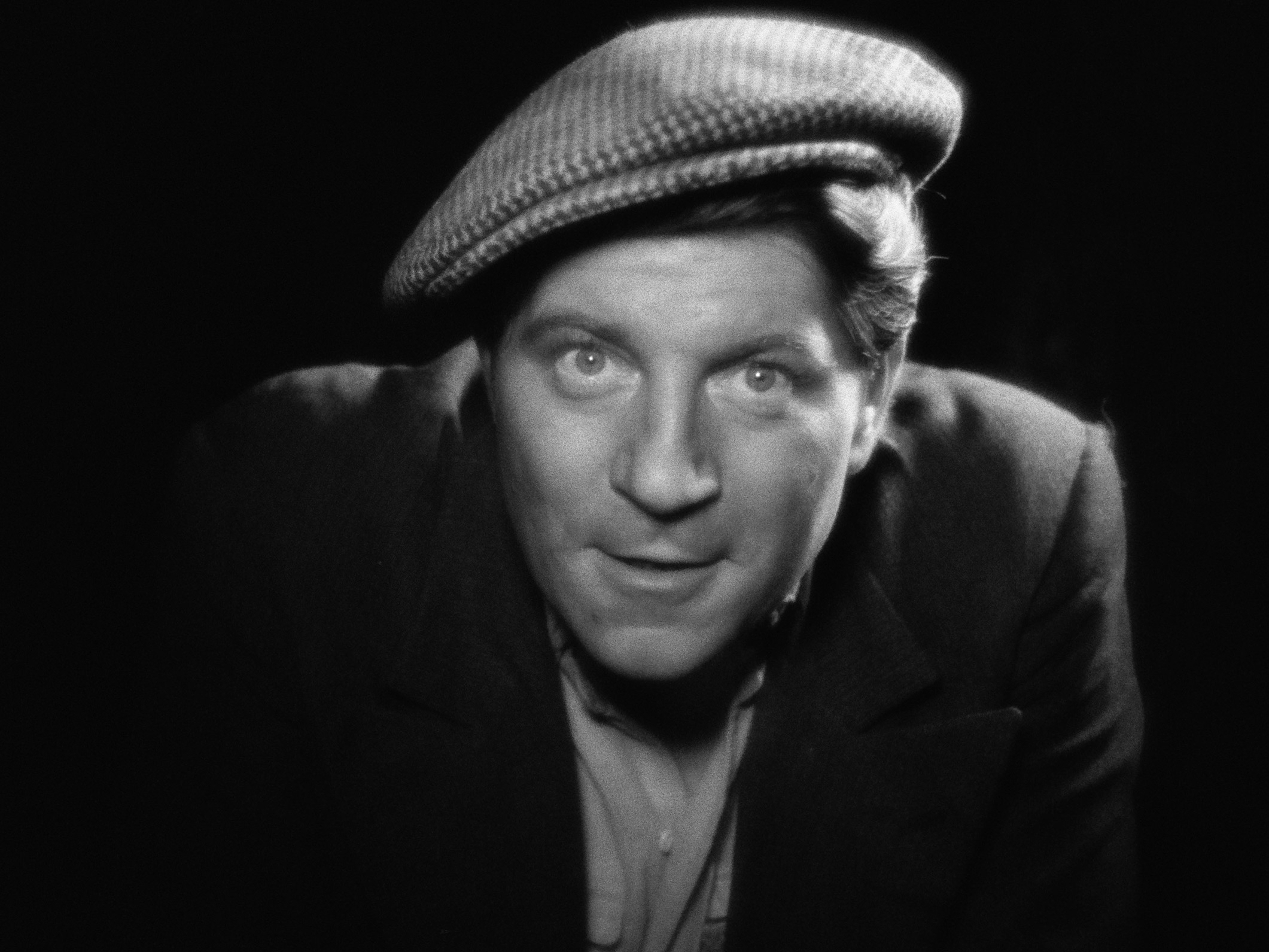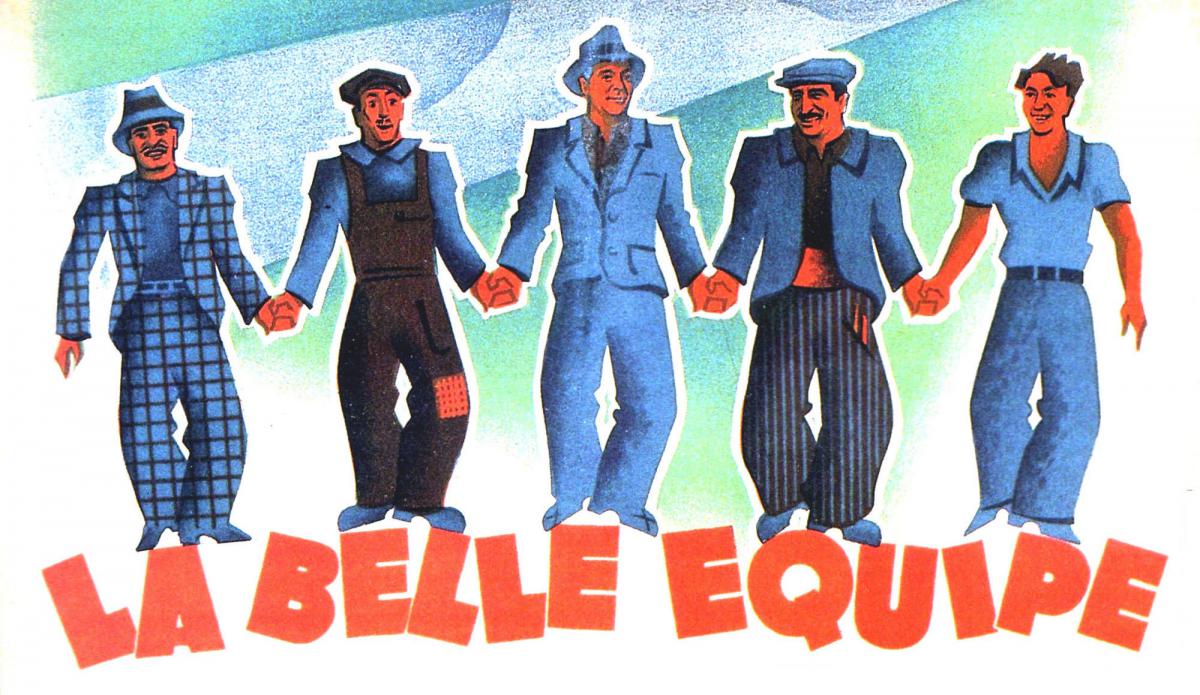
Five friends, united first by poverty and then by an unexpected lottery win, abandon Paris to renovate a ruin on the banks of the Marne, transforming it into a ‘guinguette’ (open-air café). They pursue a utopian community, which gradually falls apart.
Jean: « C'était une belle idée... une belle idée. »
« Quand on s'promène au bord de l'eau,
comme tout est beau,
quel renouveau.
Paris au loin nous semble une prison,
on a le cœur plein de chansons… »
Jean Gabin performing the film's signature song Quand on s'promène au bord de l'eau
“La Belle équipe is an iconic film of Poetic Realism and the mood of the Front Populaire (which won the elections during the filming), as far as the working-class protagonists are indifferent to ideology, as was Julien Duvivier, who recognized an immediate empathy with Charles Spaak’s storyline in terms of its pessimism and spirit of disillusionment (tinged with misogyny). (...) Duvivier and Spaak managed to persuade the producer Arys Nissotti to present such a bitter film only thanks to the backing of Gabin (at his fourth film with Duvivier). After the film’s commercial failure during the first few days of screening, however, Nissotti convinced Duvivier to shoot some new sequences and to re-edit the last part to give it a happy ending. This became definitive after the public chose it in a poll [305 out of a test audience of 366]. Up until 1960, La Belle équipe was then distributed in France with the optimistic ending (Duvivier and Spaak: ‘the stupidity of this version where the final scenes contradict the rest of the film’). In 1966, the writers reacquired the rights, but could no longer find the original. Just before his death in 1967, Duvivier, found a Swiss copy subtitled in German thanks to the Cinémathèque française, whose last reel was replaced with that of the producer. In the meantime, the sweetened version had also circulated in Great Britain and the United States, while in Italy and Germany the original version was released. With historian Lenny Borger’s discovery of a nitrate dupe preserved by Cineteca Nazionale in Rome, the writers’ original version has been restored.”
Roberto Chiesi1
« On retrouve dans ce film toute la mythologie de '36 : la solidarité ouvrière : éveillée par les paroles de Jean, elle est symbolisée par la construction de la guinguette, la mise en commun de l’argent, la nuit passée sur le toit à retenir les tuiles menacées par l’orage. L’affiche du film représente cinq silhouettes se tenant par la main. Un nom doit être trouvé pour la propriété commune, ce petit phalanstère comme un siècle plus tôt en rêvait Fourier. « Chaque citoyen (étant) président », elle s’appellera « Chez nous ». L’enseigne qui l’illustre est encadrée de deux mains qui se serrent, le symbole de la C.G.T. (est-ce volontaire ?). La solidarité s’exerce aussi envers le cinquième, Mario, réfugié politique espagnol, amoureux d’Huguette. »
Geneviève Guillaume-Grimaut2

- 1Roberto Chiesi, “La belle équipe,” Festival Il Cinema Ritrovato, June 2015.
- 2Geneviève Guillaume-Grimaut, “Le peuple au cinéma,” L’Avant-scène cinéma, 450 (1996).

